 The founder of hedge fund Kynikos Associates is betting against Intel’s share price and has done so for the last six months.
The founder of hedge fund Kynikos Associates is betting against Intel’s share price and has done so for the last six months.
 The founder of hedge fund Kynikos Associates is betting against Intel’s share price and has done so for the last six months.
The founder of hedge fund Kynikos Associates is betting against Intel’s share price and has done so for the last six months.
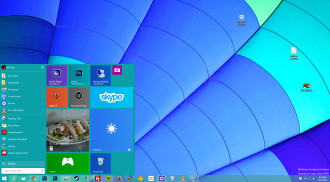 The arrival of Windows 10 and the introduction of 14 nanometre microprocessors are unlikely to stimulate much demand for PCs in 2015.
The arrival of Windows 10 and the introduction of 14 nanometre microprocessors are unlikely to stimulate much demand for PCs in 2015.
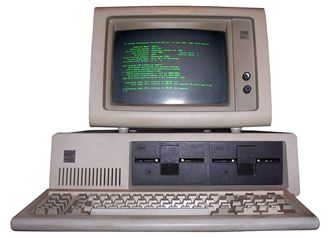 People are being tempted to upgrade their PCs after years of delayed renewals.
People are being tempted to upgrade their PCs after years of delayed renewals.
IDC said that PC shipments in Western Europe were up by 23.6 percent in the third quarter, compared with the same quarter last year.
Although sales slowed in the enterprise arena, people are being tempted by low end notebooks using Windows 8.1 Bing. The commercial sector has already largely completed its shift from Windows XP, IDC said.
The tablet market declined in the third quarter but 2-in-1 machines did well, growing 46.4 percent in the quarter. Smartphones showed 6.1 percent growth – largely caused by affordable smartphones and the arrival of 4G networks.
IDC calls notebooks, desktop PCs, smartphones and tablets “smart connected devices” and the leader of the pack is Samsung – even though its growth fell by 16.5 percent compared to the third quarter of 2013. Samsung was followed by Apple, Sony, HP, and Lenovo.
Lenovo showed a 64.1 percent unit growth quarter on quarter, year on year.
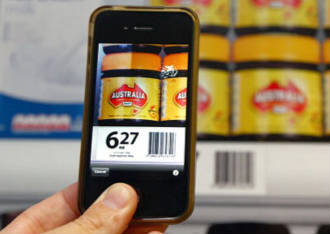 A report predicted that by 2018 over 50 percent of people will use either a smartphone or a tablet for all online activities.
A report predicted that by 2018 over 50 percent of people will use either a smartphone or a tablet for all online activities.
Gartner said people will gradually move away from the PC as people use smartphnes and tablets more more.
Voice, gesture and other ways of communicating with devices online will be the rule of thumb, while 40 percent of enterprises will use wi-fi as the default connection and Ethernet will go away.
Security built into wi-fi appears to be adequate to the task, said Gartner, after the introduction of Advanced Encryption Standard (AES) into the equation.
And there’s more good news. Gartner thinks by 2020 we’ll all be paying less than $100 for smartphone and other devices. Subsidies or sponsorships will also reduce the cost of devices while by 2018 over half of business to enterprise (B2E) mobile apps will be used by business analysts using codeless tools.
 While the concepts of “Black Friday” and “Cyber Monday” are largely unknown in these isles, shops have jumped on the American bandwagon causing riots and mayhem in shops across the UK.
While the concepts of “Black Friday” and “Cyber Monday” are largely unknown in these isles, shops have jumped on the American bandwagon causing riots and mayhem in shops across the UK.
And now James Lovell, European retail guru, has got his analytics engines to work and notices that although sales fell compared to last year, the percentage of sales made on mobiles rose by around a third.
He said mobile phone usage as a percentage of overall sales rose by 42.88 percent, and tablets used to buy stuff rose by 12 percent.
The average order value on “Black Friday” was £88.86 percent, and mobile traffic represented 59.8 percent of all online traffic in the UK.
Contrasting different mobile operating systems, Lovell said Android OS sessions as a percentage of overall “Cyber Monday” sales grew by 55 percent, but only represented 11 percent of the overall sales spend.
But the desktop is not dead – over half of all online sales were made by people tip tapping into whatever flavour of Windows they’re being forced to use.
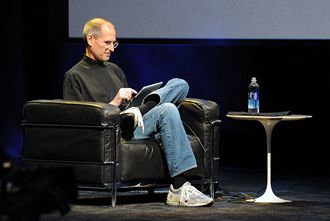 Out of the 74.53 million tablets expected to ship during the current calendar quarter, the Apple iPad will take the lead with 26.8 percent of the worldwide shipments.
Out of the 74.53 million tablets expected to ship during the current calendar quarter, the Apple iPad will take the lead with 26.8 percent of the worldwide shipments.
That’s according to Digitimes Research, which said that out of those 74.5 million tablets, 20 million will be iPads, 27.8 million will be from other multinational vendors such as Samsung and Lenovo, and 26.7 million will be so-called “white box” or unbranded units.
Taiwan is the ghost in the tablet machine and accounts for two thirds of the global market for tablets with firms like Foxconn, Pegatron, Compal and Quanta churning them out.
While figures for tablets shipping in the fourth quarter seem healthy, and rose by sequential quarter by 17.6 percent, if you compare the figures year on year, there’s a decline of shipments by 10.1 percent.
The pundits have many theories as to why the tablet market is showing signs of stalling, but the favourite is that in Western markets most people already have one or more tablet and see little or no reason to either buy more tablets or to upgrade.
And increased sales of smartphones with larger screens – so called phablets – are nibbling away at the tablet market.
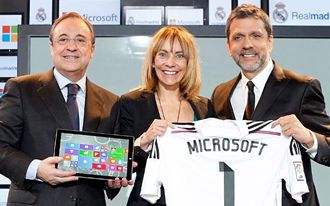 Football team Real Madrid has struck a rather unlikely partnership with software giant Microsoft.
Football team Real Madrid has struck a rather unlikely partnership with software giant Microsoft.
Under the deal, Microsoft will be Real Madrid’s technological partner and provide digital services to the club across a number of devices including PCs, tablets, smartphones and so-called “smart shirts”.
Microsoft is staying schtum about the financial implications of the partnership but did say a number of different technological developments will be rolled out in the next few months.
This, said Microsoft, will make Real Madrid the best digital football club in the world.
Newly hatched Microsoft CEO Satya Nadella said in a prepared statement that it is “delighted” to offer digital tools to Real Madrid supporters across the world.
Orlando Ayala (pictured right) who runs emerging markets at Microsoft said the agreement was a start of long journey and his firm will build a digital platform for Madridistas to share their passion for the football team.
 Things continue to look less than rosy on the notebook front with shipments worldwide expected to drop in the fourth quarter of this year.
Things continue to look less than rosy on the notebook front with shipments worldwide expected to drop in the fourth quarter of this year.
That’s according to Digitimes Research, which said the downward movement is in spite of Intel and Microsoft applying subsidies in a big to boost demand.
The report suggests that global notebook shipments will drop 4.4 percent compared to the same quarter last year. The fourth quarter always used to be a buoyant period for the PC industry, but those rules now seem to be things of the past.
Digitimes Research said that Lenovo and Asustek will do better than the rest of the pack and are expected to show growth in the quarter.
Acer will see a hit, it reports while Lenovo appears to be having some success in Europe, shipping 10 million units in the quarter.
It appears that at the consumer end of the market few have been convinced that Windows 8.1 is the bee’s knees.
 While Intel turned in remarkably buoyant financial results last week, the news remains somewhat gloomy on the PC front.
While Intel turned in remarkably buoyant financial results last week, the news remains somewhat gloomy on the PC front.
Figures released by IDC showed that shipments to consumers in the potentially lucrative Asia Pacific region in the third quarter of this year fell by five percent compared to the same quarter last year.
Sales were up compared to the previous quarter by eight percent and totalled 26.6 million units.
China and India showed better than expected shipments in the quarter.
Handoko Andi, research manager for client devices at IDC said: “[Windows] XP migration helped boost commercial PC spending earlier this year. But in recent quarters, we have seen Microsoft add a lot to the entry level segment by launching the Windows 8.1 with Bing programme.”
Lenovo is numero uno iin the region, followed by Dell, HP, Acer and Asus. HP showed a decline of 16.1 percent in shipments in the region compared to the same quarter last year, while Acer showed an 11.2 percent decline.
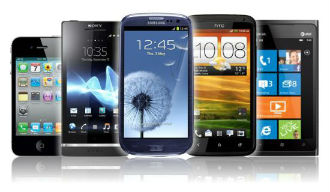 A report by Monetate said data showed that mobile commerce continues to grow at a fair old pace.
A report by Monetate said data showed that mobile commerce continues to grow at a fair old pace.
Figures for the second quarter of 2014 available today showed that mobile commerce traffic rose by 120 percent compared to the same quarter in 2013 on smartphones. Tablet traffic grew by 35 percent and desktop traffic flatlined.
Even though mobile devices now generate 16 percent of all ecommerce traffic, revenue is less than four percent. And mobile customers are more fickle with a 50 percent higher bounce rate, and a 30 percent lower “add to cart” rate.
Further, people using smartphones are 10 percent more likely to abandon a transaction.
“Mobile commercial traffic is increasing dramatically as consumers become more comfortable shopping via mobile [phones],” said Lucinda Duncalfe, CEO of Monetate. “But the low conversion rates imply that brands need to create more relevant persnalised mobile experiences to take advantage of the opportunities.”
IBM, which contributed to the survey, said companies need to rethink their mobile strategies. Jay Henderson, strategy director at IBM ExperienceOne said: “It’s a fairly complex process that involves reworking sites, using data to improve nagivation and deepen connections.”
The survey analyses a random sample of over seven billion online episodes.
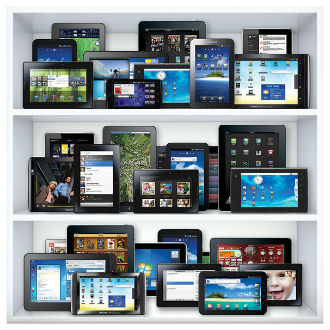 Sales of tablets are set to slow down next year because the market is saturated with devices.
Sales of tablets are set to slow down next year because the market is saturated with devices.
So says Taiwanese market research company Market Intelligence and Consulting (MIC). MIC is a Taiwanese government quango and is in a position to know because most tablets are made in Taiwan and mainland China. Many are so-called “white box” units – often sold at rock bottom prices and unbranded.
And it also forecasts that the global PC market will shrink next year because enterprises are slowing down buying the gear, according to a report in English language newspaper the Taipei Times.
MIC said global shipments will be 293 million units next year, which represents a 9.2 increase from sales this year. But the rate of increase is in decline.
One of the reasons is that smartphones are getting bigger.
Meanwhile, MIC said worldwide shipments of PCs will be 295 million units, that’s down from shipments this year. Sales this year got a boost because Microsoft stopped supporting Windows XP.
 Sales of PCs in the Middle East and Africa (MEA) region showed growth in the second quarter, stopping a continuous seven quarter decline. That applies to both notebooks and desktop machnes.
Sales of PCs in the Middle East and Africa (MEA) region showed growth in the second quarter, stopping a continuous seven quarter decline. That applies to both notebooks and desktop machnes.
So says market research company IDC, which said growth in the quarter amounted to 2.2 percent, up by 4.5 million units.
Oddly, the bulk of the growth came in Iran, Iraq, Syria, Yemen, Palestine and Afghanistan. Why is that odd? Because, according to Fouad Rafiq Charakla, research manager at IDC, no vendor make any official shipments of PCs into these countries.
Saudi Arabia and Pakisan showed growth in the region. “The healthy shipments seen in most countries can either be attributed to a recovery from instability – be it economic political or social – or to previously low PC penetration rates. Bearing this in mind, Egypt and Nigeria are expected to be among the region’s fastest growing PC markets in 2014,” Charakla said.
The top dogs in the region are HP, Lenovo, and Dell. But the last suffered a shortfall year on year. Acer and Asus came fourth and fifth respectively.
 Giant PC supplier Dell said it has released redesigned additions to its Latitude and Optiplex PCs.
Giant PC supplier Dell said it has released redesigned additions to its Latitude and Optiplex PCs.
The Latitude 7000 Series 2 in 1, the Latitude 3000 and 5000 series laptops and the Optiplex 9020 and 3020 desktop PCs come with a set of fresh functions.
Dell claims its the only vendor to offer encryption, advanced authentication and malware prevention from a single source – and this helps its customers save time and cost.
The Latitude 7000 machine combines a business Ultrabook and a detachable tablet in one device, with a 12.20inch display and an instant go feature similar to those found in smartphones and tablets.
The Optiplex machines have a chassis design of only 1.2 litres and are aimed at places where space is at a premium.
Dell said its Chromebox – a cloud based unit – offers multiple ports, Ultra HD resolution and several mounting options.
Dell also introduced the 55 Monitor, which, as its name suggests, has a 55-inch wide screen.
All machines are already available or will be available during this month.
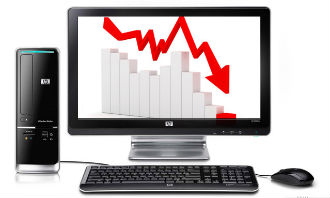 Market research company IDC said there’s light at the end of the tunnel for PC sales in the Middle East and Africa (MEA).
Market research company IDC said there’s light at the end of the tunnel for PC sales in the Middle East and Africa (MEA).
The second quarter of 2014 grw by 3.2 percent, ending seven consecutive quarters of decline.
But overall PC shipments were down 8.3 percent for the first quarter of this year, according to the IDC figures.
The decline in the market is largely because people and organisations are moving towards tablets and smartphones, according to Fouad Rafiq Charakla, a research manager at the firm.
But PC vendors are pushing aggressive pricing, new form factors and so the decline is softer in Q2 2014 than in the seven quarters before.
More political stability is helping the trend to spend, and the fact that people are moving from the now defunct Windows XP.